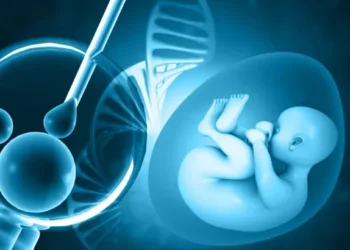A heart CT scan is also known as a coronary CT angiography. It is a non-invasive imaging test that uses X-rays to produce detailed images of the heart and blood vessels.
This test is primarily used to diagnose heart disease. Many patients who see Dr Woo Jia Wei at Sunrise Heart for heart CT scan in Singapore, frequently ask; “can it also detect other health conditions?”
In today’s guide, we will explain how heart CT scans work. We will also discuss the conditions they can detect, and explore the limitations of this procedure, among other issues.
How heart CT scans work
Before we dive into the ability of heart CT scans to detect other conditions, let’s first look at how these scans work. During a heart CT scan, you will lie on a table while a scanner rotates around you, taking images of the heart from different angles.
These images are combined to produce a three-dimensional view of the heart and surrounding blood vessels. This test helps detect blockages or narrowing of the coronary arteries, which can lead to heart attacks or other cardiovascular problems. Heart CT scans can also identify other heart abnormalities, such as valve disease or enlarged chambers.
What other Conditions can a Heart CT scan Detect?
A heart CT scan is designed to help detect abnormalities in the heart, like blocked or narrowed arteries, heart defects, and other heart-related conditions. The good thing is that it can also identify other health issues that are not directly related to the heart.
Heart CT scans are handy in detecting these conditions since they can identify them early. This can allow for timely treatment and management and avoid more life-threatening situations. Here are a few health conditions that a heart CT scan can detect:
- Pulmonary embolism: A pulmonary embolism occurs when a blood clot forms in one of the pulmonary arteries in the lungs. This can be life-threatening if not treated promptly. By detecting blood clots in the lungs, a heart CT scan can allow for early diagnosis and intervention to prevent further complications. Common symptoms of pulmonary embolism include shortness of breath, chest pain, and coughing up blood.
- Aortic aneurysm: An aortic aneurysm is an enlargement of the aorta, the largest blood vessel in the body. If left untreated, it can rupture, leading to life-threatening bleeding. A heart CT scan can detect an aortic aneurysm, allowing for early intervention to prevent further complications. Symptoms of an aortic aneurysm may include sudden and severe pain in the chest, back, or abdomen, depending on the location of the aneurysm.
- Lung cancer: A heart CT scan can also detect nodules in the lungs, which can be an early sign of lung cancer. Early detection of lung cancer is crucial, as it increases the chances of successful treatment and management. Symptoms of lung cancer include a persistent cough, coughing up blood, shortness of breath, and chest pain.
Why Would a Doctor Order a CT scan?
If your doctor recommended a heart CT scan in Singapore, you could wonder why a doctor would order a CT scan. Well, there are several reasons why your doctor may order a CT scan of your chest. Here are just some of the most common reasons:
- Suspected Lung Disease: If you’re experiencing symptoms such as persistent coughing, shortness of breath, chest pain, or have a history of smoking, your doctor may order a CT scan to evaluate the lungs for any signs of lung disease. As explained before, the scan can help detect lung nodules, lung cancer, pulmonary embolism, or other lung conditions requiring further evaluation and treatment.
- Chest Trauma: If you have suffered an injury to the chest area, such as a blunt force trauma or a penetrating injury, your doctor may also order a CT scan to evaluate the extent of the damage. The scan, in this case, can help detect fractures, punctured lungs, or other injuries that may require immediate medical attention.
- Monitoring Treatment Progression: Your physician may also order a chest CT scan to monitor the progression of a disease or treatment. For example, if you were undergoing treatment for lung cancer, a CT scan can help the doctor see if the tumor is shrinking or if cancer has spread to other parts of the body.
- Pre-Surgical Planning: Finally, if you were scheduled for surgery involving the chest area, such as a lung biopsy or thoracic surgery, a CT scan may be ordered to help the surgeon plan the procedure and identify any potential complications.
Limitations of heart CT scans
While heart CT scans are helpful in detecting a range of health conditions, they have limitations. For example:
- Radiation exposure: Heart CT scans use X-rays. This exposes the patient to radiation, and while the amount of radiation is small, repeated scans over time can increase the risk of cancer.
- Limited view: Heart CT scans only provide images of the heart and surrounding blood vessels. That said, they do not provide images of other organs, such as the kidneys or liver.
- False positives: Heart CT scans can sometimes detect abnormalities that are not actually present. This can lead to unnecessary additional testing or procedures.
- Not suitable for everyone: Heart CT scans are not suitable for everyone. For example, your doctor may not advise that you proceed with the procedure if you have kidney disease or are pregnant.
The Future of Heart CT scans
Despite these limitations, heart CT scans are an important tool for diagnosing a range of health conditions. And, as with any medical technology, heart CT scanning is constantly evolving.
Emerging trends and technologies in heart CT scanning include low-dose scans and artificial intelligence. Low-dose scans use lower radiation levels, reducing the potential risk to patients.
Artificial intelligence can help to interpret the images produced by heart CT scans, improving the accuracy of diagnosis. As these technologies evolve, heart CT scans may become even more useful for diagnosing a wider range of health conditions.
Takeaway
A heart CT scan in Singapore is a valuable tool in identifying heart disease and other potentially life-threatening health conditions. If you are at risk for any of the conditions discussed in this post, make a point of seeing a heart doctor and consider a heart CT scan.
At Sunrise Heart Clinic, we provide comprehensive heart care services, including heart CT scans, to help our patients maintain optimal heart health. Contact us today to schedule an appointment and take the first step towards a healthier heart. Don’t wait until it’s too late; take control of your heart health today!
Sunrise Heart Clinic – Heart Check Up | Treadmill ECG Test | Echocardiogram
365 Sembawang Cres, #01-02,
Singapore 750365
+65 6235 1137







